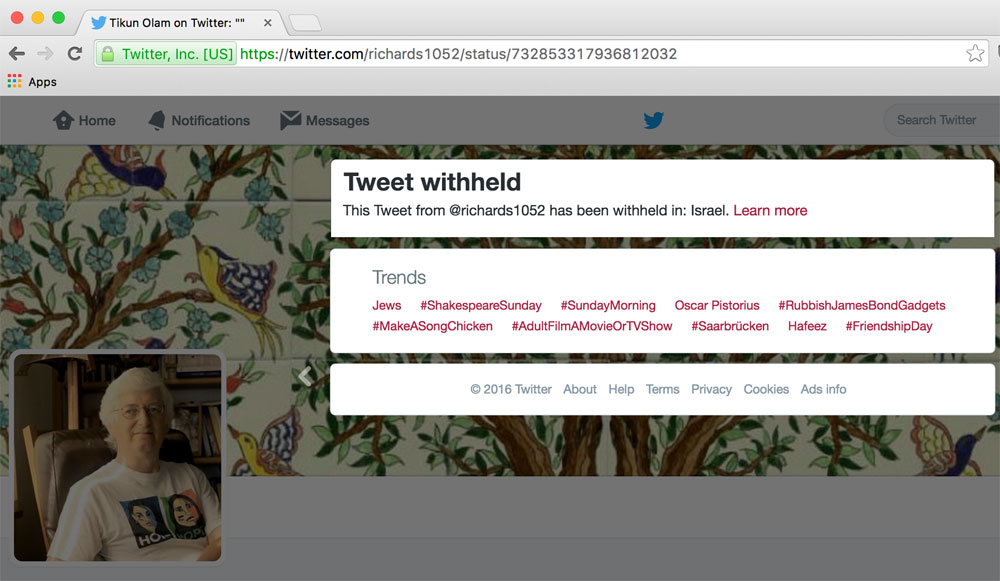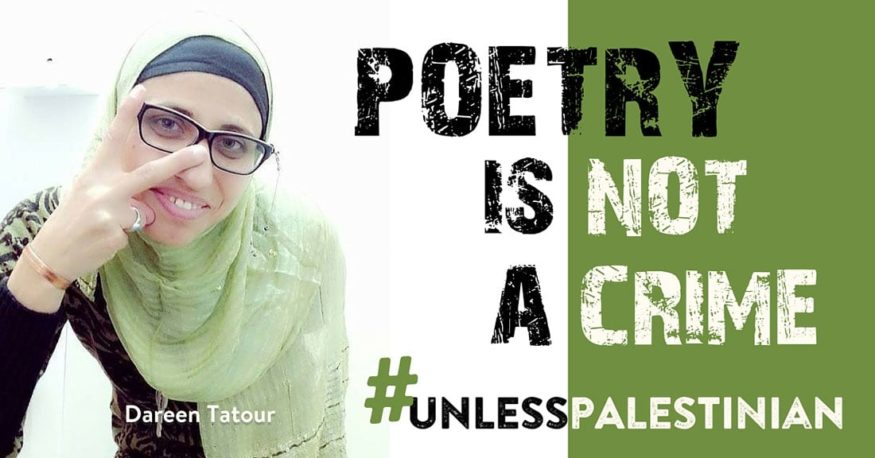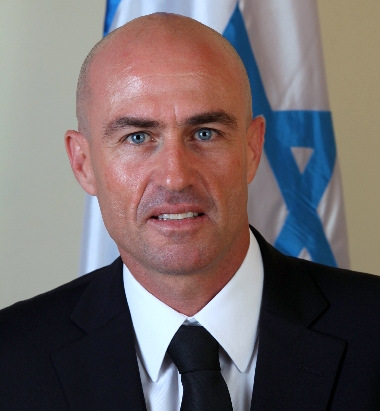
SEATTLE — Though Israel’s reputation as a true democracy has certainly come under fire, its advocates proudly point to its freewheeling press as an exemplar of the values of liberal Zionism. But even this last holdout of Israeli democracy is rapidly receding, particularly in traditional domestic print and broadcast media and, more recently, among foreign-headquartered social media platforms.
The governing right wing has succeeded in gaining a virtual monopoly over the newspaper-reading public. Sheldon Adelson, an American casino magnate, founded Israel Hayom (“Israel Today”) in 2007 as a free Hebrew daily allied with Prime Minister Benjamin Netanyahu’s hard-right political agenda.
Israeli political reporter Tal Schneider, writing for the i24 news portal in 2014, revealed that Adelson’s funding is the sole reason the paper survives:
“Adelson’s venture has hurt the other main dailies in Israel. None could base a business model on a monthly loss of $3 million (according to estimates, this is how much Adelson spends on Israel Hayom). This is not a classic business loss. In fact, it’s a political donation of $3 million a month by the magnate to his protégé, the Prime Minister of Israel.”
Indeed, other papers, like Makor Rishon, a right-wing weekly which also owned the Hebrew daily newspaper Maariv and its website, have failed. And Adelson’s snapped them up at fire-sale prices, folding them into his growing right-wing media empire. The former leading daily, Yediot Achronot, has been eclipsed by Israel Hayom because it doesn’t have Adelson’s deep pockets and can’t afford to offer itself free to the public. Haaretz, the leading liberal newspaper, lags far behind the others both in popularity and influence.
The government doesn’t yet control TV and radio broadcasting, the other two critical media realms that play a major role in forming public opinion, but Netanyahu eagerly seeks to put his stamp on them as well.
Last month, after Army Radio broadcast a documentary on the life of the leading Palestinian national poet, Mahmoud Darwish, Defense Minister Avigdor Lieberman hauled the station director on the carpet and lectured him, saying that material like Darwish’s shouldn’t darken Israeli airwaves.
It’s likely that Lieberman would like nothing more than to direct the station programming himself, but he’s been warned by the attorney general he has no statutory authority to do so. The next Army Radio director appointed by Lieberman will surely adhere much more closely to the Likudist government agenda, which denies agency and identity to the Palestinians of Israel.
Israeli far-right plans to dismantle public broadcasting
For over 50 years, Israel has maintained an independent public broadcasting authority responsible for airing TV and radio programming. The Israel Broadcasting Authority (IBA) has developed a professional corps of personnel and programs that encompass entertainment and serious news journalism.
But here’s the rub: Israel’s political leadership no longer wishes to see independent media. Much like authoritarian governments around the world, including Poland, Russia, and Turkey, the Israeli government seeks to exert greater control over what the public sees and hears.
The government under Netanyahu hatched a plan earlier this year to dissolve the IBA, which is approaching financial insolvency and is riddled with political favoritism. Ostensibly, the goal was to create a new, financially sound broadcasting authority that operates under leadership that is fully independent of political interference, but Israel is such an entrenched society that projects that begin with high hopes of reforming past mistakes often end by repeating or even exacerbating them.
The government says it wants to encourage diversity and competition, but its true intent becomes clear in this interview with Ofir Akunis, the Knesset minister who is in charge of the IBA and the Second Television and Radio Authority. He told Al-Monitor’s Mazal Mualem in August 2015:
“I think that after the last election there’s a greater understanding that Israeli public discourse clearly leans to one side of the political map, and it’s not to the right. Senior analysts lead this worldview, and the questions of the TV hosts are biased. It’s clear. You can discern this lack of balance in political panels, where there’s always the token right-winger confronted by three or four representatives from the left, and even though it’s clear today that most of the public opposes a Palestinian state, the small screen presents things as if it’s the opposite.
In the last election we saw how most of the media stood clearly for the candidate of the other party and amplified the strength of the left-wing camp. If there were a strong public broadcasting authority, it would reflect the situation in a more balanced way.”
When the administration started feeling the pressure of opposition to the new plan from the well-organized employee unions who saw their jobs disappearing, politicians began having second thoughts about destroying a media juggernaut which had done a reasonably good job of informing the public for over 50 years.
Even Netanyahu, an expert in placing his finger to the political winds, is downplaying his support for the project. Of course, he’s framing this backpedaling as yet another form of opposition to the “left-wing mafia” which supposedly controls the IBA.
At an Aug. 8 meeting on the subject, Netanyahu warned: “What if all the employees of the new public broadcasting corporation are members of the Breaking the Silence organization?” Breaking the Silence is an anti-occupation NGO which takes personal testimony from Israeli Defense Forces soldiers about potential war crimes and shares them with international human rights groups. It is the bête noire of the Israeli far right, viewed by many as traitorous.
Bringing social media to heel
Despite the government’s success in infiltrating traditional media, social media is another story entirely. Companies like Twitter, Facebook and YouTube are American-owned and content is generated by users, so it’s much more difficult for the Israeli government to step in and manipulate these platforms’ message.
Israelis, who use Facebook as their primary platform, find these venues to be more freewheeling and decentralized than the mainstream media. For this reason, government ministries fund major programs employing Israeli students and other volunteers to shape the debate online.
When it comes to Palestinian participation in social media, though, authorities take a far different, more punitive approach. Scores of Palestinians have been arrested for posting content that supports resistance to Israel’s illegal occupation.

One of the most famous of them is the poet Dareen Tatour, who published a poem on Facebook praising those who fight against Israeli domination. The Shin Bet, Israel’s domestic intelligence agency, interpreted Tatour’s poem as a call to embolden Palestinians attacking Israelis as part of the “Knife Intifada,” a round of extreme violence over the past ten months protesting Israeli restrictions on access to Jerusalem’s Haram al Sharif, the religious site also known as the Temple Mount, which resulted in the deaths of more than 200 Palestinians and 30 Israelis.
In October 2015, Tatour was arrested and placed under administrative detention, a holdover from the British Mandate which permits authorities to detain someone indefinitely without filing formal charges or bringing them to trial. Such tactics are never used against Jews, only Palestinians.
From the Separation Wall to A Virtual Fence
Now, in a tactic of breathtaking audacity, Israel’s State Attorney’s Office has decided to attempt to censor social media content published by users located outside of Israel’s jurisdiction.

An Israeli online news portal published a story in May reporting that Shamai Becker, an Israeli magistrate judge, had been accused of sexually assaulting his 14-year-old daughter. He was temporarily removed from the bench, and his lawyers quickly secured a judicial gag order which prohibited naming any of the principles in the case, specifically the judge.
When I learned about this case of censorship, I immediately decided to identify Becker on my personal blog. As part of the process of promoting the blog’s content I use social media platforms, including Facebook and Twitter. When my posts address cases under military censorship or judicial gags, I always post in Hebrew in order to reach an Israeli audience.
In June, police dropped their investigation into Becker for lack of evidence. It’s important to note that they didn’t determine a “lack of guilt;” they merely couldn’t establish enough proof to support criminal prosecution.
Twitter’s legal department contacted me via email on Aug. 2, saying that the Israeli State Attorney’s Office had informed the company that a Hebrew tweet I published on May 18 violated an Israeli gag order in the Becker case.
https://twitter.com/richards1052/status/732853317936812032
The company asked if I would be willing to delete the tweet myself. I refused, asking them not to take any action in the matter until I could consult legal counsel. I argued that the tweet didn’t violate Twitter’s terms of service or U.S. law. The company, which is based in San Francisco, was under no obligation to impose Israeli law upon me based on what I posted to my feed.
Twitter’s legal team wrote again two days later, saying that they’d decided to censor the tweet inside Israel. It’s not an especially effective form of censorship since it relies on users who, when they register, tell Twitter which country they live in. But it does create a wall around Israel to keep out information the state deems undesirable. Ironically, Israel has already built a Separation Wall to keep Palestinians out, and now Twitter has helped Israel to build a virtual wall as well.
Naturally, Twitter doesn’t call this censorship. When Twitter users in Israel attempt to access the tweet, they’re notified that it is being “withheld” in Israel. On Aug. 6, I sent an email, complaining that Twitter was setting a poor example for its users by caving so easily to the arbitrary and capricious demands of a foreign government seeking to apply its law outside of its jurisdiction. The company never replied to my complaint.

The tweet remains inaccessible to Twitter users registered in Israel. Israelis, like Chinese, Turks and others living under regimes that repress digital freedom, may access it using proxy servers or Tor, software which allows for anonymous communication. An even simpler, though lesser known, workaround involves changing a Twitter account’s country setting. (Of course, those outside Israel who are interested in seeing censorship in action could change their country setting to “Israel,” then attempt to access the tweet.)
On Friday afternoon, Twitter’s legal department sent another email regarding a slew of other tweets I posted related to the Becker case:
https://www.mintpressnews.com/wp-content/uploads/2016/08/Untitleddocument.pdf
Twitter maintains a Transparency Report which lists all actions it has taken in various countries at the behest of local authorities and other authorized reporters. Checking under the Transparency Report specifically on Israel, there have been no removal requests from Jan. 1, 2012 to Dec. 31, 2015. The latest report is forthcoming, but it will only list removal requests filed as of June 30. That means my case will not be reflected until the next filing, sometime after December 2016.
‘It’s like speeding in Germany and paying the fine to Israel’
While Vocativ was the first U.S.-based publication to report on my experience, several Israeli media published stories about this case of Twitter censorship. Middle East Eye and RT International reported the story from the United Kingdom and Russia, respectively.
The Israeli reports, however, feature conflicting justifications for the actions of the State Attorney’s Office.
The first claim is that the office didn’t direct or demand Twitter do anything; it merely pointed out that the tweet violated Israeli law and left it to Twitter to decide what to do. +972 reported: “Justice Ministry spokesperson Noam Sharvit denied, however, that Israel demanded any concrete action of Twitter in Silverstein’s case, only that it ‘brought the violation of the gag order to the company’s attention.’”
This places Twitter in the embarrassing role of cowering before the power of foreign governments and doing their bidding even before being asked to do so.
The second defense is much more troubling. The Calcalist coverage (Hebrew) quotes Israel’s Ministry of Justice as saying that the purpose of the gag order in this case is to protect the privacy of Judge Becker’s daughter:
“In accordance with this [goal], the cyber crimes division of the state prosecutor turned, as it normally does, to the relevant service provider [Twitter] in order to minimize harm done to the minor child. In our view, this doesn’t just amount to violation of Israeli law outside Israeli jurisdiction, but it’s a multi-jurisdictional crime committed not just in Israel but in jurisdictions in which it [the tweet] was published. This is an accepted approach throughout the word regarding judicial authority over the internet. What’s more, the providers themselves declare that they must comply with with state orders.”
It’s worth noting neither Israeli media nor I identified the judge’s daughter by name. The goal in reporting on this case is not exposure for exposure’s sake; the goal is to render public officials accountable for their actions.

A confidential Israeli source has confirmed that the intellectual author of this censorship project is the cyber crimes unit, which operates under the umbrella of the State Attorney’s Office. It was founded this year under the auspices of Shai Nitzan, the chief state attorney. Its original brief was to pursue conventional cyber offenses like financial crime, hacking, extortion, identity theft, but under the direction of its chief, Dr. Haim Vismonsky, it has developed an even more ambitious agenda. It has assumed the brief of international internet police. Vismonsky holds a PhD in law from Tel Aviv University, is a Major in the IDF reserves and serves there as a military judge.
In a Ynet profile, Vismonsky lays out the strategy behind his approach to Twitter in my case:
…The [cyber crime] unit removes forbidden content from the web. For this purpose, the department has developed a new approach to enforcement. “The basic idea is that the ability to enforce [the law] online is limited. Therefore, the classic method of enforcement–of complaint, investigation and filing an indictment–must focus on the effort to deal with the the crime and not the criminal; the publication and not the publisher; damage and not the perpetrator. In the past, you couldn’t get to the perpetrator [of the offense] since he was abroad or anonymous. This caused the authorities to raise their hands in despair. The alternative to the classic model says that in the event you cannot reach the individual who committed the crime–you must act to limit the damage of the crime.”
On the basis of this approach, the cyber crime division has developed personal ties with internet service providers like Google, Facebook, YouTube and others–in order to get forbidden content taken down, to close pages which support terror, and to shut down their users…
We’ve been here on the job for about a year and till now have acted to take down 1,000 items, which could mean a post or an entire web page. Half the cases dealt with content that incited to violence or terror. The other half dealt with publication which damaged government officials: extreme libelous behavior, invasion of privacy, sexual harassment, threats, etc. In our eyes, taking down such content contributes directly to a cooling down effect on the violent discourse found on social media.
…One of the groups which suffers the most from damaging material online is public officials. “In this matter you must balance the right to criticize the agency with the fear that extreme language against public official can prevent them from fulfilling their roles”…The department also deals with damaging content against judges…
Returning to the Justice Ministry statement above, it invents a bold, but specious, legal concept. There is no such thing as a “multi-jurisdictional crime” involving the internet. Certainly, there are such crimes involving genocide or other serious offenses in which an offender may be prosecuted outside his home country or the place where the crimes were committed. Perhaps in cases of computer fraud involving hacking into accounts of financial institutions one might argue on behalf of such a theory. But publishing content to social media hasn’t yet been accorded such status.
In the Calcalist article, Jonathan Klinger, an Israeli attorney and blogger specializing in cyber law, likens the State Attorney’s Office’s argument to someone getting a speeding ticket on a German highway and being asked to pay the fine to Israel:
“It’s like going to someone caught speeding at 100mph on the German autobahn and saying: “Dear fellow, you broke the Israeli legal speed limit and here’s the proof.”
Klinger further maintains that Israel’s argument infringes upon the sovereignty of other nations. Ultimately, the argument is a breathtaking feat of legal overreach — an approach more characteristic of authoritarian regimes than democracies.
A final note: Upon returning to the bench, Judge Becker was assigned a case in which an Israeli gangster stands accused of sexually assaulting another patient in the hospital where he was receiving rehabilitation treatment after his feet were blown off in an assassination attempt. In light of the fact that the female victim now refuses to testify against the gangster, Becker remanded him to house arrest. He may live in a hotel for the remainder of the trial.

